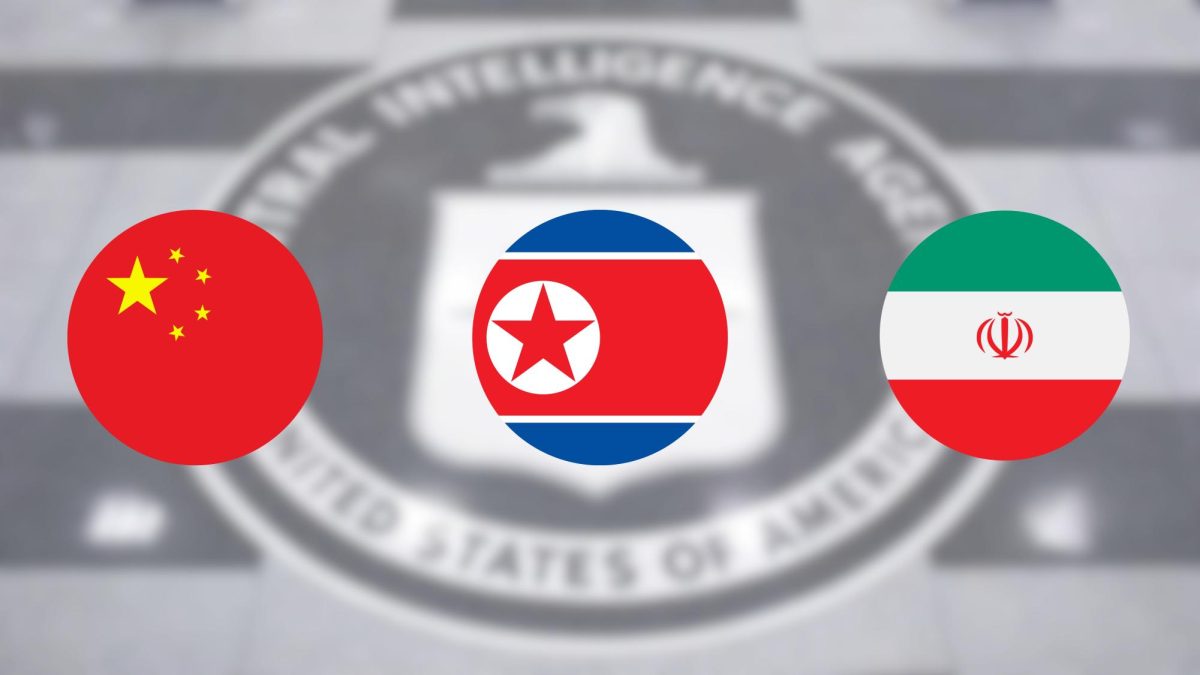The US Central Intelligence Agency (CIA) launched a new drive to recruit individuals from China, Iran, and North Korea causing controversy among the international community on Oct. 2. This process took place on social media, where the CIA posted instructions on various social media platforms such as X, Facebook, Instagram, Telegram, LinkedIn, and even the Dark Web.
The social media post included instructions in Mandarin, Farsi, and Korean, specifically on how to contact the CIA. It also contained instructions for individuals to contact the CIA using encrypted Virtual Private Networks (VPNs) if interested. In the post, the CIA also stated their global mission demanded that individuals be able to reach the CIA securely from anywhere.
“The CIA has been trying to recruit from foreign governments for decades,” James Dillhoff, government and politics teacher, said. “It’s just that this is a more public version of it. It’s tough to get agents into [North Korea, China, Iran.]”
The controversy of this campaign rose from the fact that diplomatic relations between the US and some of the respective nations has been strained during the past few decades. Specifically, the US’s adverse relations with China and North Korea date back to the Korean War in the 1950s, where the US participated by supporting South Korea against China who supported North Korea.
Many speculated that the initiative was established after the CIA saw success in occasionally recruiting Russians to work for the US after the Cold War. Through this recruitment process, the CIA wanted to notify nations so that “people in other authoritarian regimes know that we are open to cooperation.”
“I think because they are people from countries that oppose American [political] ideology, they give a more diverse perspective to the CIA,” Alina Lee (10), US history student, said. “So I think it’s good [that they recruited].”
In a BBC article, Professor Mason Richey of international politics at Hankuk University of Foreign Studies suggested that the US may be targeting North Korean traders who informally cross the border with China and might be able to access VPN networks, as US intelligence considers these countries “hard targets” when it comes to intelligence gathering.
“I think this kind of shows [that the US’ relationship with North Korea, China, Iran] is progressing a lot,” Minjoo Kim (9), MUN member, said. “North Korea, China, and Iran are countries known for being hard to get information out of, but the fact that they are trying to get information from these countries shows that they are progressing a lot.”
However, many raised concerns about this action. Many believe in letting spies from foreign nations that have not established a friendly relationship with the US to be close to such a central governmental agency like the CIA. Professor Richey expressed concern saying how “many of these discontented people are close enough to power and close enough to the places where important decisions are made.”
Furthermore, those outside of the US do not seem to be open to the idea of the new recruitment. In one case, Chinese embassy spokesman Liu Pengyu commented that the US was creating “an organized and systematic disinformation campaign against China,” highlighting the fact that “any attempts to drive a wedge between the Chinese people and the Chinese Communist Party (CCP) or to weaken their close bond will inevitably fail.”
Although the CIA’s new recruitment effectively gives the US both an economic and political advantage, the boldness of this initiative makes it significantly harder for the general public to accept and understand their pursuit of international diplomacy. Despite the fact that it is important to defend one’s nation by being aware of its surroundings, the CIA must make sure to clearly define the situation.


